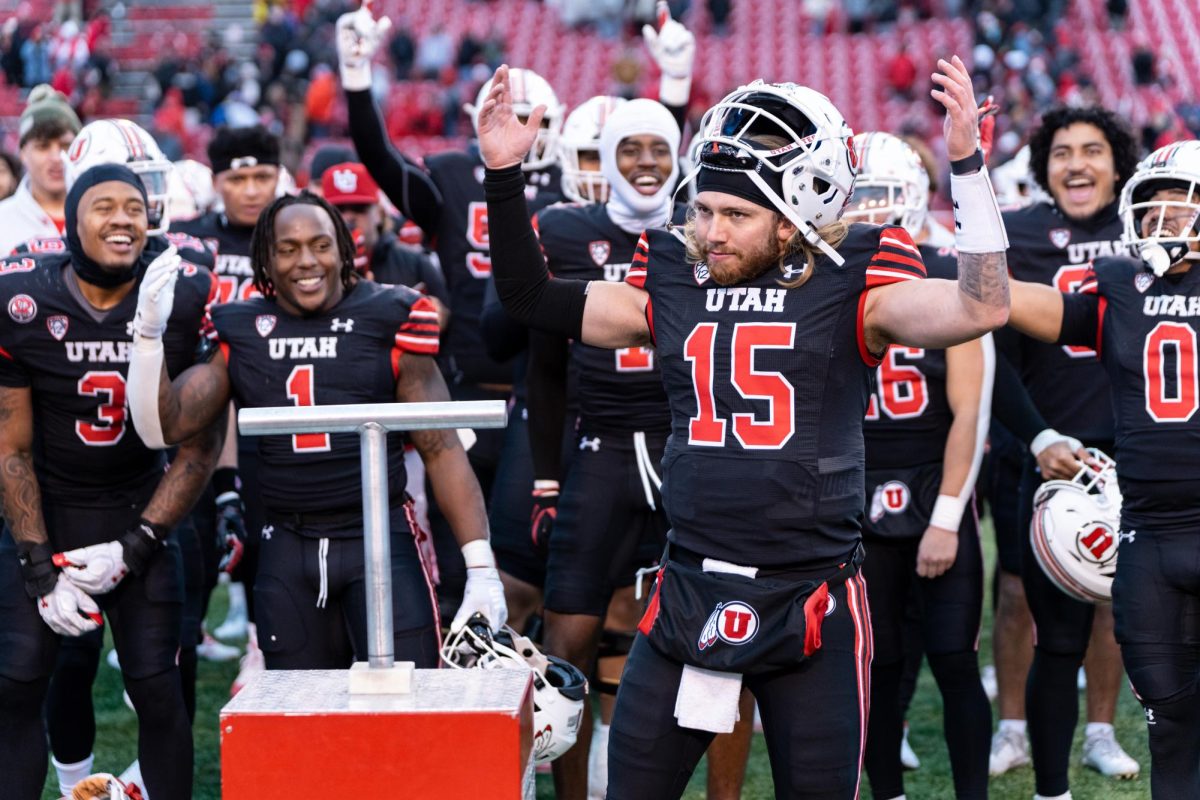In 2021, the college sports world was hit with big news. Student athletes were allowed to be paid based on their name, image and likeness — otherwise known as NIL. However, the Utah Legislature introduced a bill that would prohibit the public from even seeing these numbers — let alone knowing where they come from.
In numerous ways, athletes are being endorsed through sponsorships, school boosters and companies looking for ambassadors.
NIL deals are observed by the public with students receiving compensation upwards of millions of dollars. Notably, at the top of those valuations is Bronny James, son of NBA legend Lebron James. His valuation is about 5.8 million dollars.
As the Salt Lake Tribune reported, “It would make it impossible to learn how the schools are regulating NILs, how they stack up between male and female athletes, who might ultimately be paying the players, and other information.”
Despite purported benefits, the NIL bill risks widening inequality between players and their peers.
The True Impact of NIL Deals
While the public sees flashy cars and expensive clothing for athletes, few actually know where the money comes from. This creates a commercialization of these athletes.
Student athletes are being transformed into professional athletes way too soon.
University of Utah student and college sports enthusiast Reece Reitmeier said “In a way, it makes it a bit more similar to pro sports, as we now recognize the wishes of players more. In the past, athletes were often controlled by programs, but now they can make their own choices and pursue opportunities that matter to them.” Simply stated, in larger Power 5 programs, it’s turning into a business.
Many student athletes join brand name companies to promote products, clothing, and even food. A large part of NIL is through donor-backed group collectives, who facilitate NIL opportunities like autograph signings and appearances at fundraisers.
At the U, we have the Crimson Collective, a non-profit charitable organization that is made up of CEOs, former athletes and local community members. Their main scope is providing Utah student athletes with NIL deals in exchange for community service with local charities and social media appearances.
Notably, they also provided the Utah Football team with new ram trucks. Each player currently on scholarship got a truck. It was also said that each and every one of the trucks would be paid for by private donors.
Furthermore, without adequate regulation, such initiatives may deepen existing inequalities within collegiate sports. It won’t matter if the donors are private anymore. NIL deals will no longer be able to be viewed publicly.
Transparency and Autonomy
The bill argues for financial security for student athletes and helps their private business stay out of the public eye.
However, when doing this, there is no room for accountability and oversight of how these athletes are being paid. In other words, by concealing those documents and information, the universities are also closing themselves off from getting any critiques of fair compensation between athletes or not.
When college athletes develop a persona, it becomes less about school and more about money.
“I honestly think that it’s crucial to acknowledge that a lot of collegiate athletes, often younger and with less financial savvy, should have the opportunity to focus on developing their careers and academic pursuits without all the pressures of what a pro would face,” Reitmeier said. Which is absolutely true.
This isn’t to say that athletes don’t deserve to be compensated for all their hard work. Being a student athlete isn’t easy. But when student athletes are driving around in a car more expensive than a year’s worth of tuition, it’s hard not to ask questions. Not to mention that the students who got those cars are already on scholarships.
NIL as an idea is great. It gives students at lower levels like high school a reason to work hard.
Speaking of that impact, Reitmeier recalled her experience growing up in Texas “around a lot of kids who believed their only way out to a better future was to get to the top level of their sport, especially football … NIL will only encourage athletes to train and play harder, knowing that they can benefit financially from their efforts.”
It provides that spark to be great. There are just some gray areas that need to be addressed. As NIL becomes more prominent, it’s important to keep college sports separate from the professionals. The commercialization of college sports is something people have been wanting for decades–we can’t let our legislature turn it around. We need transparency in college sports.



